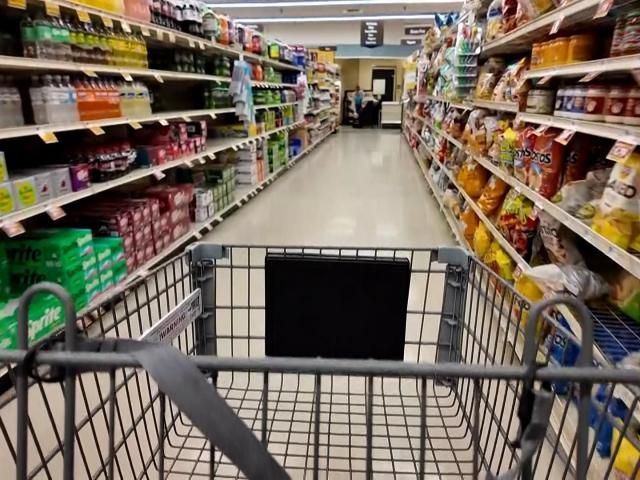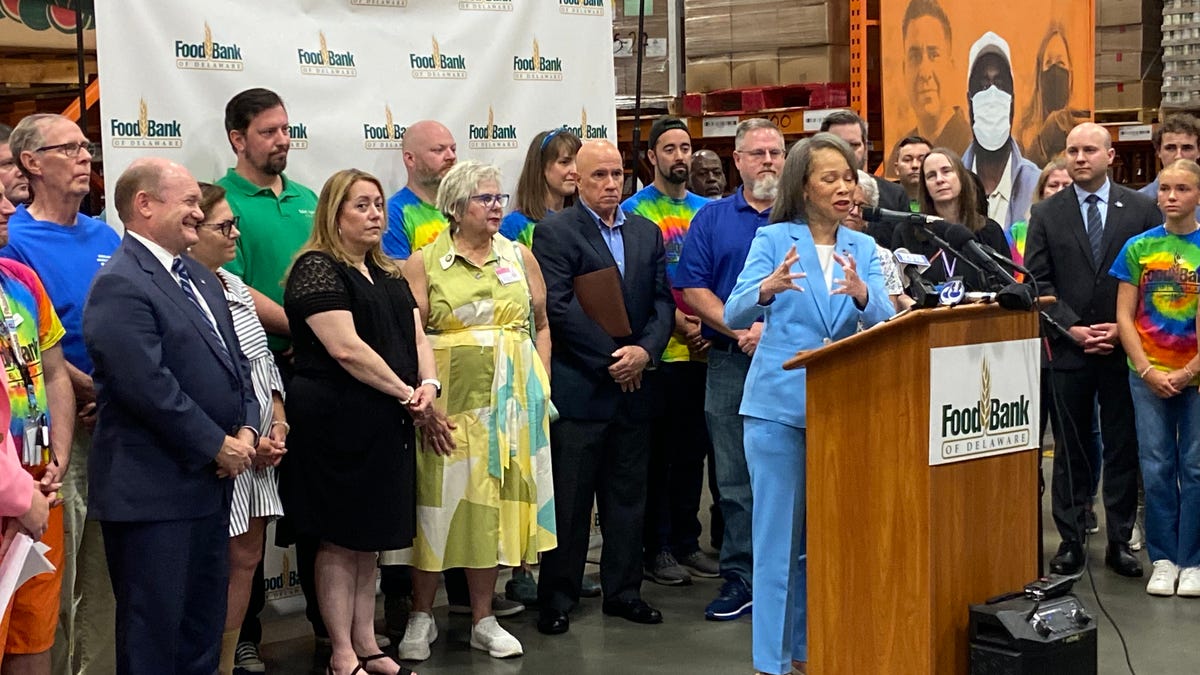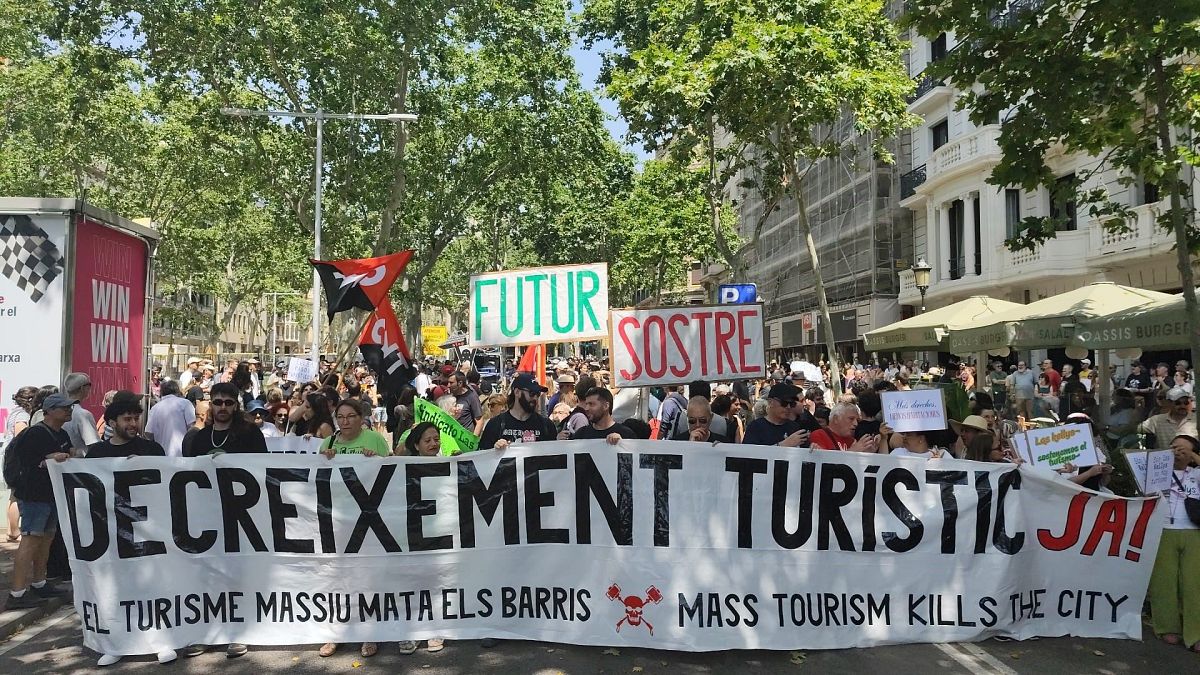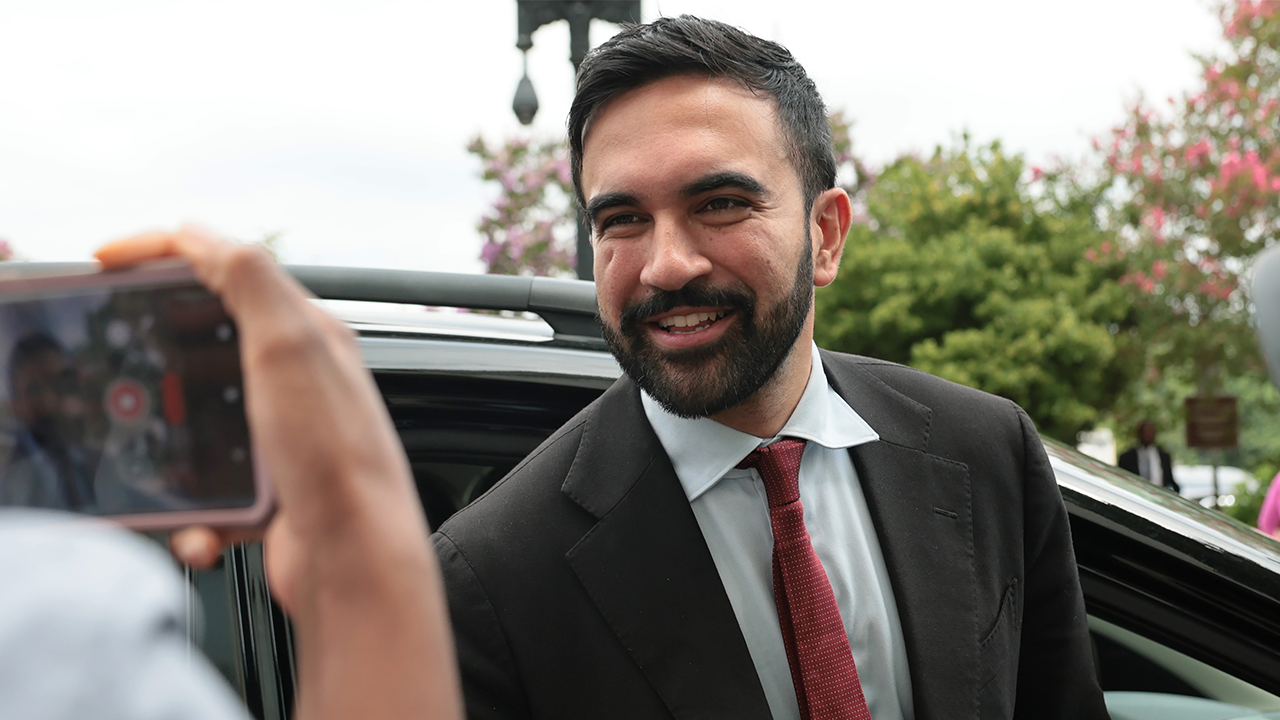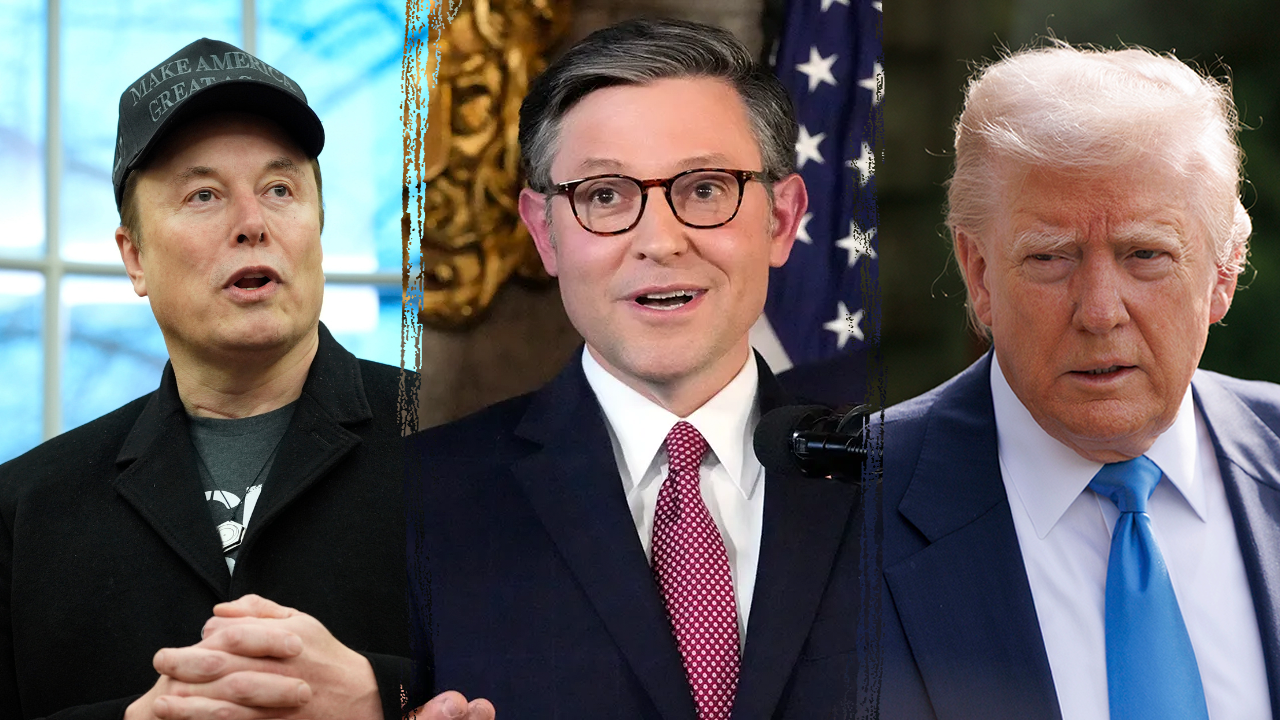World
People in the EU unable to afford a proper meal on the rise – Eurostat
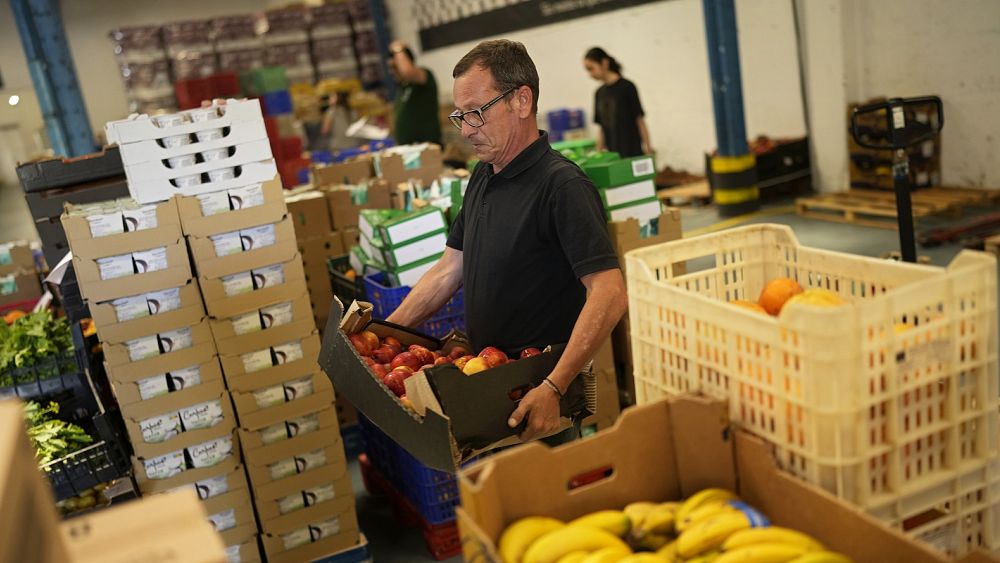
In 2022, 8.3% of people in the EU were unable to afford a meal containing meat, fish or a vegetarian equivalent every second day, according to new Eurostat data.
The figure was a percentage point higher than the previous year.
Nearly a fifth (19.7%) of Europeans at risk of poverty were unable to afford a proper meal last year, up more than two percentage points from 2021.
The share of the total population unable to afford a proper meal was highest in Eastern European countries with Romania (22.1%) leading the pack, followed by Bulgaria (21.6%) and Slovakia (15.8%)
Ireland (1.4%) recorded the lowest share, followed by Cyprus (1.5%) and Luxembourg (1.8%).
The highest share of the population considered at risk of poverty unable to afford a proper meal was recorded in Bulgaria (44.6%).
There were 95.3 million people in the EU at risk of poverty or social exclusion in 2022, equivalent to 21.6 % of the EU population.
The findings highlight an increasingly precarious situation for people living in poverty across the bloc.
The Russian invasion of Ukraine had a considerable impact on food commodity markets last year. EU annual inflation reached its highest level ever, with the price of food and non-alcoholic beverages rising by an average of 11.9% in the EU.
Prices have continued to rise in the first quarter of 2023.
Food inflation has also been driven by a reduced supply of agricultural products such as feed and fertilisers. Russia halted seaborne agricultural exports from Ukraine via Black Sea routes until the Black Sea Grain initiative was introduced in July 2022, further exacerbating food security.
Disruptions caused by extreme weather and drought have led to shortages in the agri-food chain.
Consumer associations claim that supermarkets have also gouged prices to pass on inflated costs of production to consumers.
Many EU member states recorded a record number of people applying to food banks in 2022.

World
UK government to lower voting age to 16 before next national election despite strong conservative opposition
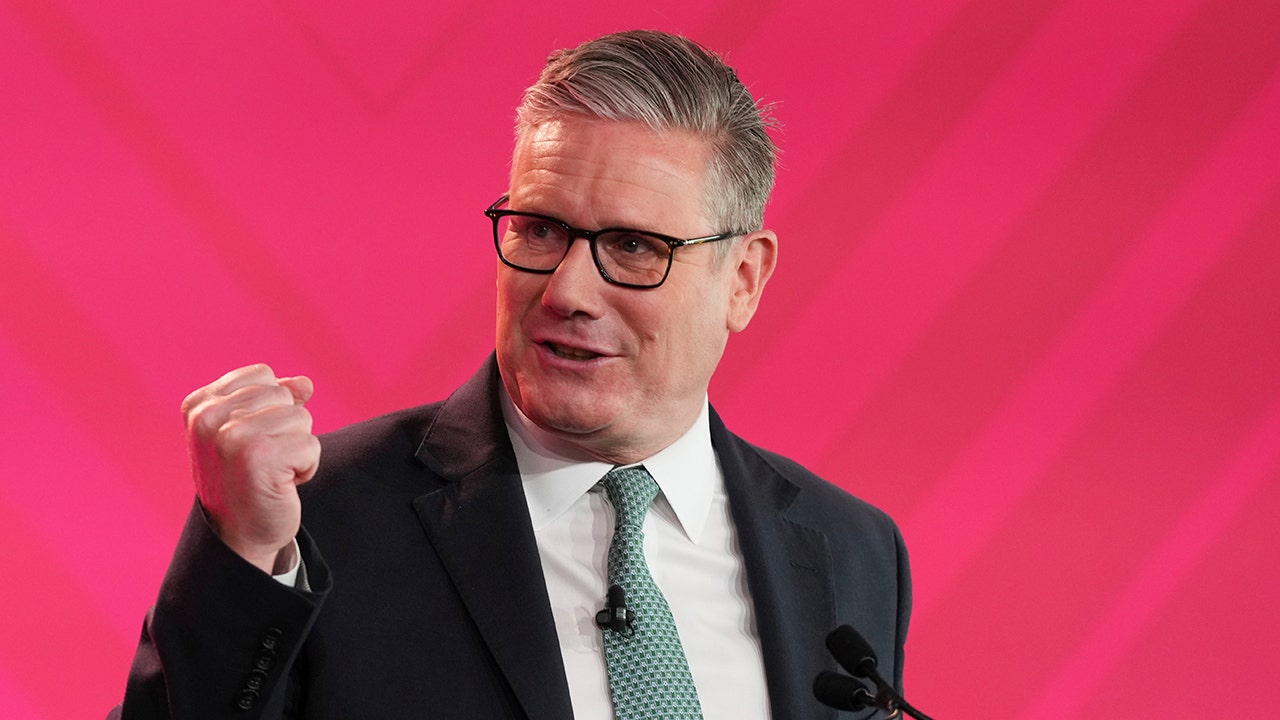
NEWYou can now listen to Fox News articles!
The United Kingdom is lowering the voting age from 18 to 16 before the next national elections – a move which opposition figures decry as a way to sway the electorate to benefit the left.
The U.K. government, controlled by the Labour Party, announced Thursday that 16- and 17-year-olds will be given the right to vote as part of other new “seismic changes.” Other election reforms include extending voter ID to bank cards, issuing new rules meant to “guard against foreign political interference and abuse of campaigners,” and tightening laws restricting foreign donations to British political parties.
In an accompanying policy paper included in the announcement, Deputy Prime Minister Angela Rayner said that “declining trust in our institutions and democracy itself has become critical, but it is the responsibility of government to turn this around and renew our democracy, just as generations have done before us.”
UKRAINE’S ZELENSKYY NAMES NEW PRIME MINISTER FOR FIRST TIME SINCE RUSSIA’S WAR BEGAN
Britain’s Prime Minister Keir Starmer speaks at a civil society summit in London, Thursday, July 17, 2025. (AP Photo/Frank Augstein, Pool)
“I think it’s really important that 16- and 17-year-olds have the vote because they’re old enough to go out to work, they’re old enough to pay taxes, so to pay in. And I think if you pay in, you should have the opportunity to say what you want your money spent on, which way the government should go,” British Prime Minister Keir Starmer told reporters on Thursday. “I’m really pleased that we’re able to bring more young people into our democracy.”
“Young people already contribute to society by working, paying taxes and serving in the military. It’s only right they can have a say on the issues that affect them,” Rayner wrote on X. The deputy prime minister also elaborated in a statement, adding: “We cannot take our democracy for granted, and by protecting our elections from abuse and boosting participation we will strengthen the foundations of our society for the future.”
The minimum age of service in the British Armed Forces is 16, but those under 18 need written consent from a parent or guardian and may not be deployed to combat zones.
British opposition politicians accused the Labour Party of trying to manipulate the electorate in their favor by lowering the voting age.
“Why does this government think a 16‑year‑old can vote but not be allowed to buy a lottery ticket or an alcoholic drink, marry or go to war, or even stand in the elections they’re voting?” Member of Parliament (MP) Paul Holmes, a conservative, said in the House of Commons on Thursday. “Isn’t the government’s position on the age of maturity just hopelessly confused?”
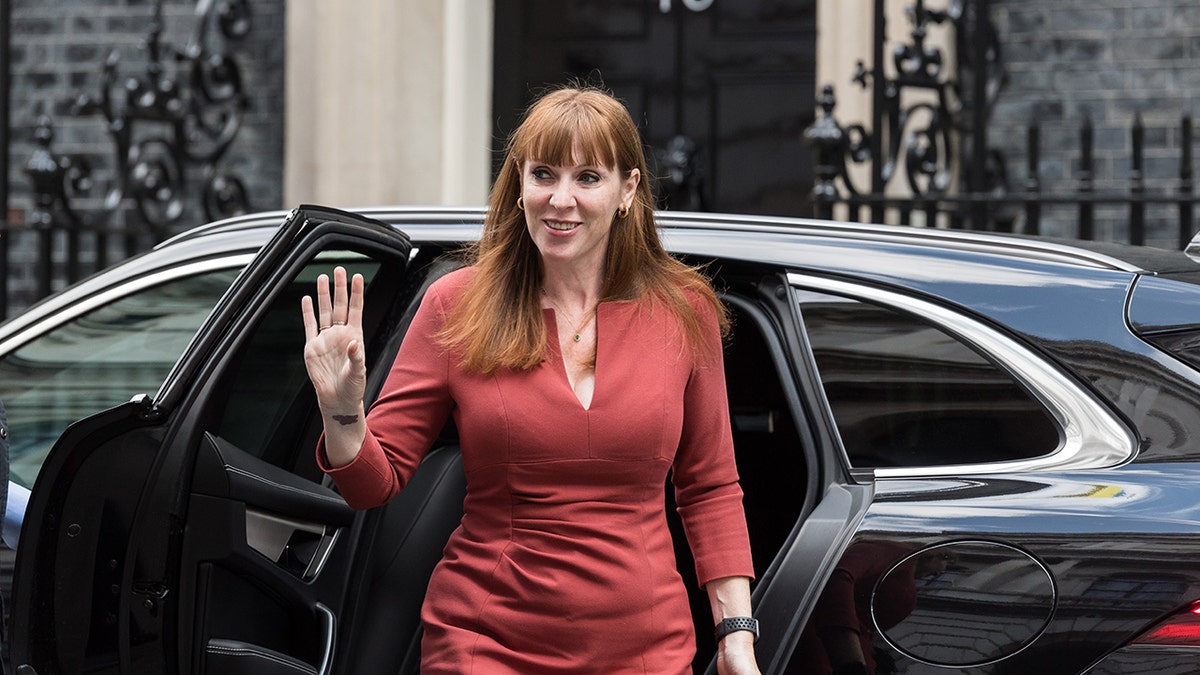
Deputy Prime Minister and Secretary of State for Levelling Up, Housing and Communities Angela Rayner arrives in Downing Street to attend the weekly Cabinet meeting in London, United Kingdom on July 15, 2025. (Wiktor Szymanowicz/Anadolu via Getty Images)
UK TO ROLL OUT RED CARPET IN ‘UNPRECEDENTED’ SECOND TRUMP VISIT HOSTED BY KING CHARLES
Holmes accused Labour of “governing by press release” and questioned whether allowing bank cards – which do not include photographs – as a form of voter ID will undermine security measures at the ballot box.
Nigel Farage, leader of the right-wing Reform UK Party, said giving 16- and 17-year-olds the right to vote “is an attempt to rig the political system.”
“The problem with this is, not only do half of youngsters not want the vote, but they have to stay at school now until they’re 18,” Farage said in a video shared to X. “The educational establishment is full of left-wing prejudice, is full of anti-reform bias, and frankly, if 16 to 18 year olds at school are going to be able to vote, we’re going to have to make sure that our education system is teaching kids to make their own minds up and not indoctrinating them.”
The change still requires parliamentary approval but was a campaign promise by the Labour Party, which won last year’s general election and holds majority control. The next general election is in 2029.
Rayner noted that 16- and 17-year-olds can already vote in Scotland and Wales in local elections and country-level parliamentary elections. The minimum voting age for local elections in England and Northern Ireland is 18.
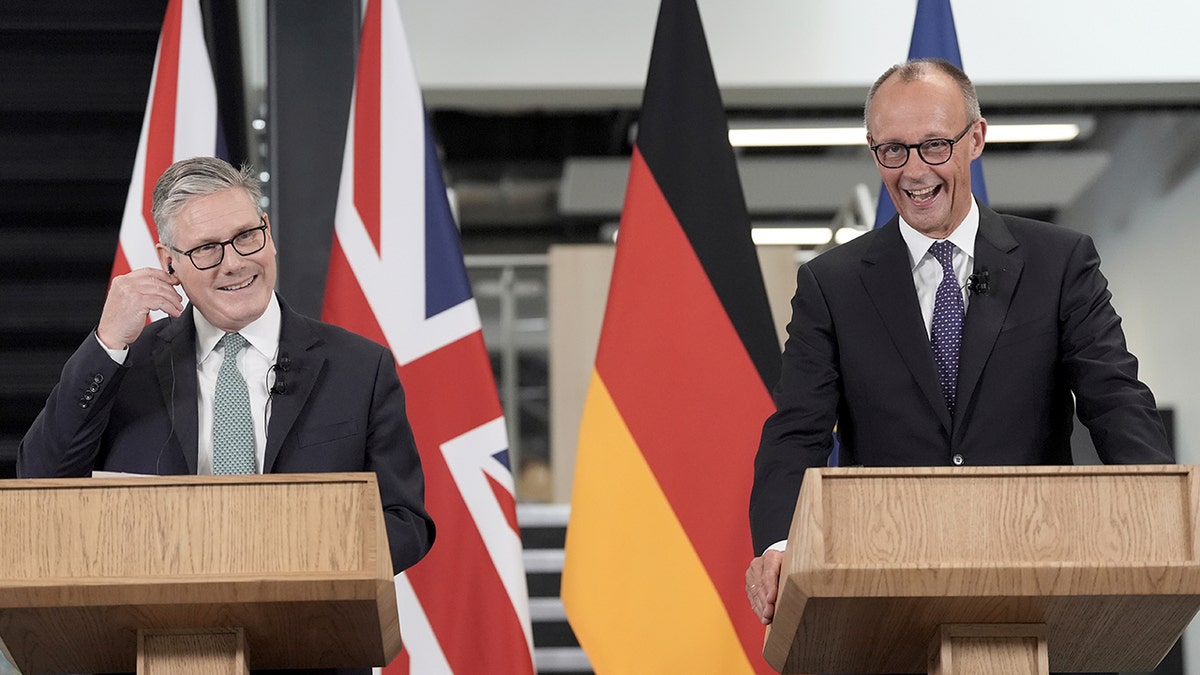
Britain’s Prime Minister Keir Starmer, left, and German Chancellor Friedrich Merz hold a press conference during a visit to the Airbus factory in Stevenage, England, Thursday July 17, 2025. (Stefan Rousseau/Pool via AP)
In an opinion piece in the British newspaper “The Times,” Rayner, who was a single mother at the age of 16, said the change makes 1.6 million 16- and 17-year-olds eligible to vote in the United Kingdom, which has a population of roughly 68 million.
“This is about fairness and transparency and giving the young a stake in our country’s future, bringing them into our communities, not excluding them,” Rayner wrote. “It’s about delivering on our manifesto to commitment to secure votes at 16. But it’s also about strengthening our electoral system so that it is fit for the 21st century — because we cannot take our democracy for granted.”
World
Varna mayor's arrest sparks widespread protests in Bulgaria
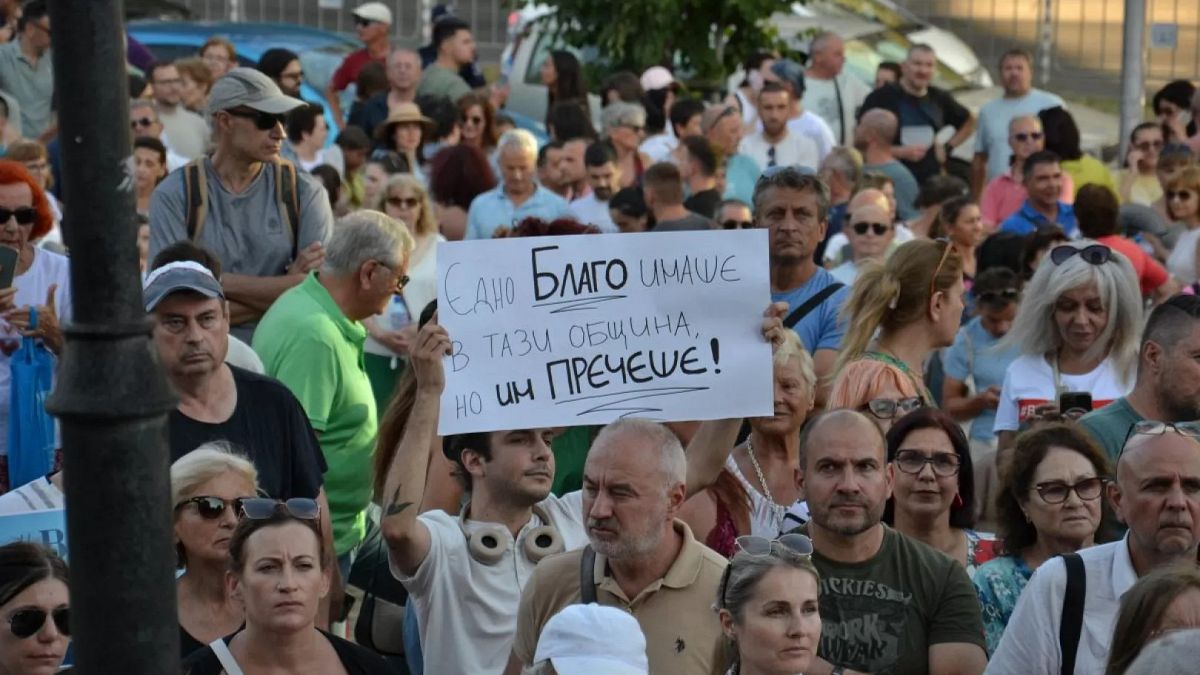
By Euronews
Published on
•Updated
ADVERTISEMENT
The arrest of Varna’s Mayor Blagomir Kotsev has escalated from a local courtroom drama into a regional diplomatic flashpoint, as protests sweep Bulgaria and extend to Brussels, Germany and the UK.
Kotsev, a prominent figure from the opposition “We Continue the Change – Democratic Bulgaria” party, was detained on 8 July on allegations of embezzling public procurement funds through a catering contract.
He has firmly denied all charges, describing the case as politically motivated. The controversy deepened when a key witness later admitted their testimony had been coerced.
On Thursday, during a hearing in the Sofia appellate court, prosecutors presented 59 pages of additional evidence, which Kotsev’s defence dismissed as irrelevant and part of a smear campaign.
The mayor’s arrest has triggered strong reactions not only from within Bulgaria’s reformist circles but also from European political allies.
Vasil Terziev, the mayor of Sofia, condemned the detention as a targeted act of selective justice. Meanwhile, the Renew Europe group in the European Parliament, of which Kotsev’s party is a member, labelled the arrest “political repression” and a threat to EU democratic norms.
In response, protests have broken out across Bulgaria, with slogans such as “The law is not a weapon.” Supporters of Kotsev have also mobilised abroad, organising demonstrations in Brussels, Berlin and London.
Bulgarian-German relations on the line?
The involvement of the German ambassador at a recent protest has heightened tensions between Sofia and Berlin, prompting an unprecedented reaction from the Bulgarian Foreign Ministry.
Germany’s ambassador to Bulgaria was seen joining one of the protests in Varna, standing in apparent solidarity with Kotsev’s supporters, in an unusual diplomatic action that sparked swift retaliation from Sofia.
The Bulgarian Foreign Ministry issued a formal diplomatic note, criticising what it perceived as direct interference in the country’s internal judicial affairs.
Germany has not yet released an official response, but the ambassador’s presence reflects Berlin’s broader concern over rule-of-law issues within some EU member states.
Meanwhile, three other ambassadors — from France, the Netherlands and the UK — attended Kotsev’s hearing on Thursday.
At a time when Bulgaria is seeking to solidify its position within the eurozone and Schengen area, the brewing crisis puts Sofia under pressure to demonstrate genuine progress on judicial independence and anti-corruption reforms.
In its 2024 rule of law report on Bulgaria, the European Commission expressed lingering concerns over the remaining reforms Sofia is expected to undertake.
World
Astronomers capture the birth of planets around a baby sun outside our solar system
CAPE CANAVERAL, Fla. (AP) — Astronomers have discovered the earliest seeds of rocky planets forming in the gas around a baby sun-like star, providing a precious peek into the dawn of our own solar system.
It’s an unprecedented snapshot of “time zero,” scientists reported Wednesday, when new worlds begin to gel.
“We’ve captured a direct glimpse of the hot region where rocky planets like Earth are born around young protostars,” said Leiden Observatory’s Melissa McClure from the Netherlands, who led the international research team. “For the first time, we can conclusively say that the first steps of planet formation are happening right now.”
The observations offer a unique glimpse into the inner workings of an emerging planetary system, said the University of Chicago’s Fred Ciesla, who was not involved in the study appearing in the journal Nature.
“This is one of the things we’ve been waiting for. Astronomers have been thinking about how planetary systems form for a long period of time,” Ciesla said. “There’s a rich opportunity here.”
NASA’s Webb Space Telescope and the European Southern Observatory in Chile teamed up to unveil these early nuggets of planetary formation around the young star known as HOPS-315. It’s a yellow dwarf in the making like the sun, yet much younger at 100,000 to 200,000 years old and some 1,370 light-years away. A single light-year is 6 trillion miles.
In a cosmic first, McClure and her team stared deep into the gas disk around the baby star and detected solid specks condensing — signs of early planet formation. A gap in the outer part of the disk gave allowed them to gaze inside, thanks to the way the star tilts toward Earth.
They detected silicon monoxide gas as well as crystalline silicate minerals, the ingredients for what’s believed to be the first solid materials to form in our solar system more than 4.5 billion years ago. The action is unfolding in a location comparable to the asteroid belt between Mars and Jupiter containing the leftover building blocks of our solar system’s planets.
The condensing of hot minerals was never detected before around other young stars, “so we didn’t know if it was a universal feature of planet formation or a weird feature of our solar system,” McClure said in an email. “Our study shows that it could be a common process during the earliest stage of planet formation.”
While other research has looked at younger gas disks and, more commonly, mature disks with potential planet wannabes, there’s been no specific evidence for the start of planet formation until now, McClure said.
In a stunning picture taken by the ESO’s Alma telescope network, the emerging planetary system resembles a lightning bug glowing against the black void.
It’s impossible to know how many planets might form around HOPS-315. With a gas disk as massive as the sun’s might have been, it could also wind up with eight planets a million or more years from now, according to McClure.
Purdue University’s Merel van ’t Hoff, a co-author, is eager to find more budding planetary systems. By casting a wider net, astronomers can look for similarities and determine which processes might be crucial to forming Earth-like worlds.
“Are there Earth-like planets out there or are we like so special that we might not expect it to occur very often?”
___
AP video journalist Javier Arciga contributed to this report.
___
The Associated Press Health and Science Department receives support from the Howard Hughes Medical Institute’s Department of Science Education and the Robert Wood Johnson Foundation. The AP is solely responsible for all content.
-

 News1 week ago
News1 week agoVideo: Trump Compliments President of Liberia on His ‘Beautiful English’
-
Finance1 week ago
Do you really save money on Prime Day?
-

 News1 week ago
News1 week agoTexas Flooding Map: See How the Floodwaters Rose Along the Guadalupe River
-

 News6 days ago
News6 days agoVideo: Clashes After Immigration Raid at California Cannabis Farm
-

 Politics1 week ago
Politics1 week agoJournalist who refused to duck during Trump assassination attempt reflects on Butler rally in new book
-
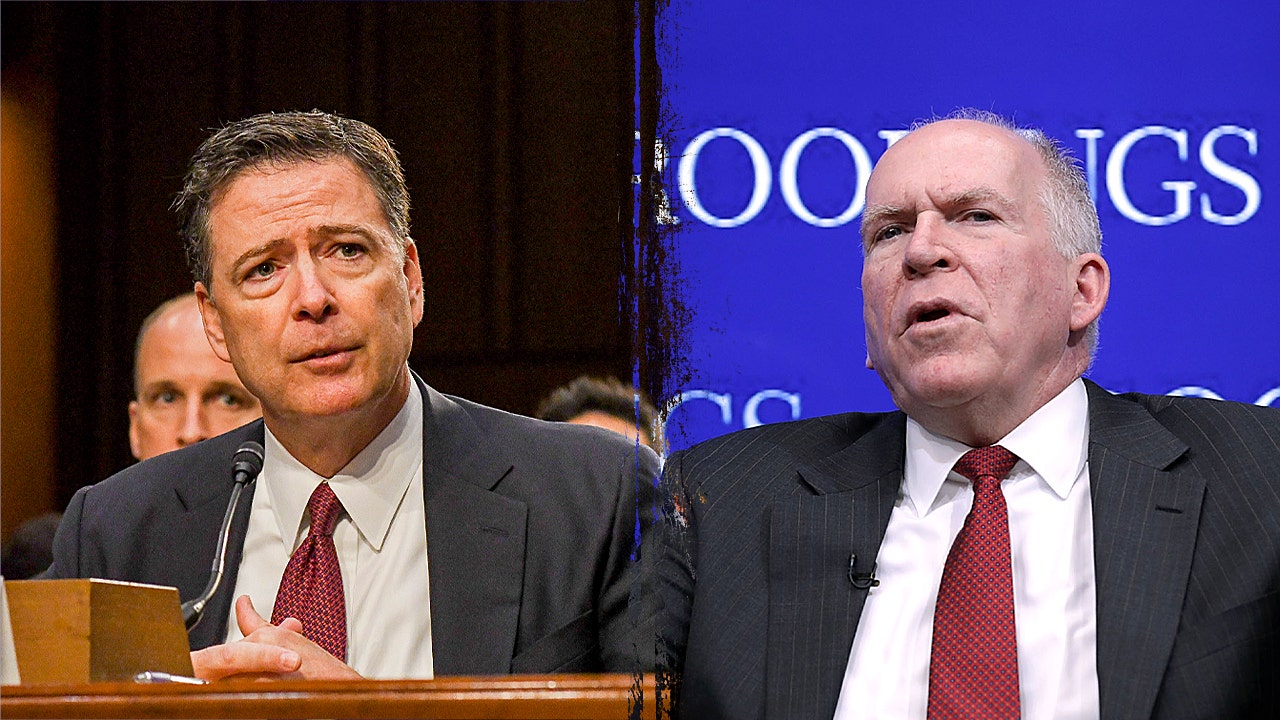
 Politics1 week ago
Politics1 week agoObama officials used dossier to probe, brief Trump despite knowing it was unverified 'internet rumor'
-

 News1 week ago
News1 week agoDOGE keeps gaining access to sensitive data. Now, it can cut off billions to farmers
-

 World6 days ago
World6 days agoNew amnesty law for human rights abuses in Peru prompts fury, action
